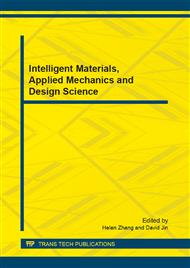p.83
p.87
p.95
p.99
p.103
p.107
p.111
p.116
p.120
The Comparative Trail Research on the Performance of a Diesel Engine Fuelled with Diesel Fuel and Biodiesel/Diesel Blended Fuel
Abstract:
This paper discusses the brake specific fuel consumption and brake thermal efficiency of a diesel engine using cottonseed biodiesel blended with diesel fuel. A series of experiments were conducted for the various blends under varying load conditions at a speed of 1500 rpm and 2500 rpm and the results were compared with the neat diesel. From the results, it is found that the brake specific fuel consumption of cottonseed biodiesel is slightly higher than that of diesel fuel at different engine loads and speeds, with this increase being higher the higher the percentage of the biodiesel in the blend. And the brake thermal efficiency of cottonseed biodiesel is nearly similar to that of diesel fuel at different engine loads and speeds. From the investigation, it is concluded that cottonseed biodiesl can be directly used in diesel engines without any modifications, at least in small blending ratios.
Info:
Periodical:
Pages:
103-106
DOI:
Citation:
Online since:
November 2011
Authors:
Price:
Сopyright:
© 2012 Trans Tech Publications Ltd. All Rights Reserved
Share:
Citation:


